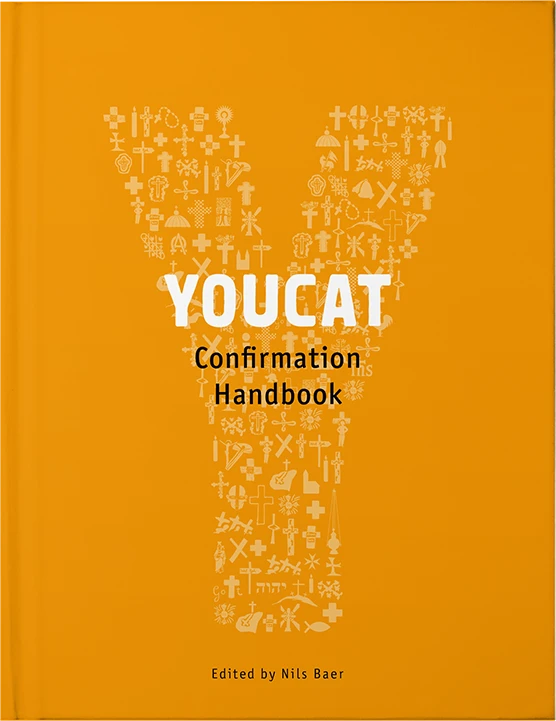

Credopedia
Charity
Among the many kinds of love, active charity (Latin: caritas) takes a special place. An interpretation based on the Bible and the Catechism.
What is it?
Among the various kinds of love, charity (Latin: caritas) holds a special place. Seeing and serving others in their need is a sure way to God, the source of all love. It is God, through Jesus Christ, who made it possible for us to share in his unconditional, divine care for our neighbor. In Deus caritas est, Pope Benedict XVI wrote, “ for the Church, charity is not a kind of welfare activity which could equally well be left to others, but is part of her nature, an indispensable expression of her very being.”
What does the Holy Bible say?
The command to charity, to love your neighbor is ancient. It appears as early as Leviticus 19,18 (“You shall love your neighbor as yourself. I am the LORD.”) and is made concrete many times. When Jesus is asked about this commandment, He re-emphasizes the teaching and deepens it: “Which is the first of all the commandments?” Jesus replied, “The first is: ‘Hear, O Israel! The Lord our God is Lord alone! You shall love the Lord your God with all your heart, with all your soul, with all your mind, and with all your strength.’ The second is this: ‘You shall love your neighbor as yourself.’ There is no other commandment greater than these” (Mk 12,28-31). Jesus’ intensification is particularly tangible in at least two places. One is the Sermon on the Mount where He says: “You have heard that it was said, ‘You shall love your neighbor and hate your enemy.’ But I say to you, love your enemies, and pray for those who persecute you, that you may be children of your heavenly Father, for he makes his sun rise on the bad and the good, and causes the rain to fall on the just and the unjust” (Mt 5,43-45). Jesus’ second great teaching on charity is the parable of the Good Samaritan (Lk 10,25-37). Here, those called to love do not, but the Samaritan outsider, of all people, turns out to be the one who pleases God by truly loving. The facets of love are richly developed in St. Paul’s first letter to the Corinthians (“Love is patient… kind… does not brood over injury…”, etc. – 1 Cor 13). Altogether, “whoever does not love a brother whom he has seen cannot love God whom he has not seen”(1 Jn 4,20).
A short YOUCAT-Catechesis
The orders of love
Charity is not held in high regard. A woman that I know well visits a bedridden lady in a nursing home once a week. She does this out of genuine charity, not for any gain. It is particularly good because this old lady does not have anyone left. She depends on helpers and cannot even get out of bed herself. She has no children. Her friends and relatives have either lost touch or have already passed away. This old lady becomes happy like a child when my friend comes to visit. And my friend is also happy when she hears: “Look at that rose, you brought it to me exactly one year ago!” – “But it’s not beautiful anymore!” – “But it is still beautiful because it is from you!”…
Occasionally, people will say to my friend: “Visiting an old folk’s home? That’s not for me! Just the smell!” – as if she had a particularly exotic hobby. But charity is the greatest act. The French philosopher and mathematician Blaise Pascal (1623–1662) takes the wind out of the sails of all conceivable objections.
What interests you?
Pascal speaks of three orders in the world: the lowest order is the material, but mankind can already fall into a blind fascination with it. We can waste hours, days, even our entire life on stamp collections, home interior, or culinary highlights. But who would say that the material world is the last or greatest order to be found? It is, as Pascal says, “infinitely surpassed” by the second order, the order of the spirit. Is it not nobler when mankind devotes itself to great ideals; when they give their all so that freedom, equality, brotherhood, as well as knowledge, understanding, beauty, and truth come to fruition? Is this not indeed infinitely superior to devotion to material things? And yet, the greatest and noblest realities and concepts of the second order are nothing compared to the third order, the order of love.
The greatest of these is love
And here – in the order of love – Pascal arrives at a startling yet immediately plausible realization which had not been formulated before in this way: “All bodies together, and all minds together, and all their products, are not worth the least impulse of charity.” This must be meditated upon slowly and carefully. Perhaps like this: the tear you dry from a child’s cheek, the sweat you wipe from a dying person’s brow, the time you spend with a lonely person – all of these small acts are infinitely greater, more significant, closer to the divine than posh cars, designer mansions, and luxury yachts or even a thought, literature, and philosophy. “The greatest of these is love,” says Paul in 1 Corinthians 13,13 (a scripture verse well worth memorizing; it deserves to be remembered). YOUCAT 402 says: “The more a person loves, the more they resemble God.”
This is where we are at with Charity. Everything can be left behind. I don’t have to collect stamps, I don’t have to stand on a stage, I don’t have to see foreign countries, and I don’t have to climb great peaks. All of that is nice to have. But the command to love is urgent. A person does not love if they do not help someone who has fallen down. A child who out of love plays with a mentally handicapped child of the same age does more than someone who builds the largest sports stadium in the world, indeed, even more than someone who has written a brilliant novel and is a household name. The child is acting within the third order, and the least in this third order of love is greater than the greatest in the first and second orders of the material and the spirit. YOUCAT 321 explains from the depths of God why we have been set toward the third order from eternity: “Since man is God’s ‘image,’ in a certain way, he reflects God, who in his depths is not alone but triune (and thus life, love, dialogue, and exchange). Finally, love is the central commandment for all Christians; through it, we profoundly belong together and are fundamentally dependent on one another. ‘You shall love your neighbor as yourself’ (Mt 22,39).”
At 62, she went to the “garbage people”
For Sœur Emmanuelle, a religious sister, who is as popular in France as Zinedine Zidane, the realization of the qualitative leap given by the five little words “the smallest stirring of love” became the decisive turning point of her life. She, who had a degree from the Sorbonne and was crazy about knowledge, decided at 62 years old to move to the typhus-infested garbage dumps of Cairo because many people were suffering there where the smallest stirrings of love were needed, such as fresh air, bread, and clean water. It was her call within a call. At last, she found what St. Catherine of Siena had found in charity: Love weeps with those who are weeping, rejoices with the rejoicing, is happier for another’s well-being than for their own. How many societies exist where people live in the shadows of ignorance because they fall through the cracks, are not covered by any aid, and there are no laws to save them from the worst situations. “A society is not perfected by laws,” says YOUCAT 329, “but rather by love of neighbor which makes it possible for everyone to ‘consider his every neighbor without exception as another self’” (Gaudium et Spes 27,1).
It is not allowed not to love oneself
This is freeing self-forgetfulness, one of the most beautiful things on earth. But there is an attitude that appears like ‘self-forgetfulness’ but is toxic. It is the fatal selflessness that is common, particularly among women. They tear themselves apart for everyone – their husband, their children, the Church community – but do not care for themselves. There are people who find it considerably easier to “love” their neighbor than to accept themselves in their weakness and misery with a little love, and if possible, mercy. Each Christian should know: It is not allowed not to love oneself. This is a sin, a direct offense against God who is “in love” with you with the greatest intensity as He is “in love” with every other being he has created.
And this also must be meditated deeply upon: I am loved not because I am so great but because God has his eye on me, because He is crazy about me, because He loves me as if I were the only being between heaven and earth. St. Teresa of Avila, the mystic, testifies that God loves us more than we love ourselves. So how can I despise myself when God loves me infinitely even though I am weak?
And the Dominican Meister Eckhart (1260-1328), also a mystically gifted thinker, gives this criterion of self-examination: “If you love yourself, you love everybody as yourself. As long as you love one person less than yourself, you have never truly learned to love yourself.”

YOUCAT Digital
Discover our digital products, which will help you to grow in faith and become missionaries yourself.







